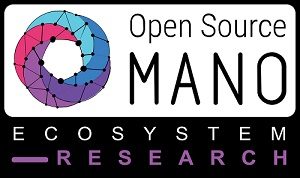Metro-Haul Presence in ECOC 2017
Metro-Haul has had a notable presence in the last European Conference on Optical Communications (ECOC), which took place in Gothenburg, Sweden, on September 17-21, 2017. Main results and achievements from the first months of the project have been disseminated by Metro-Haul partners, covering both data and control plane aspects.
Metro-Haul key objectives include performing research on new and advanced optical switching and transmission technologies, in support of 5G networks and heterogeneous access technologies. The macroscopic objectives involve, notably, novel, cost-efficient and programmable optical transceivers as well as configurable network elements, which are being designed and evaluated in a wide range of scenarios by Metro-Haul partners. In particular, illustrative examples are a real-time, modulation-adaptable transmitter, detailed in the work “Demonstration of Real-Time Modulation-Adaptable Transmitter”, (by University of Bristol) and filter-less and semi filter-less networks, experimentally demonstrated within the work “Semi Filter-Less Drop & Waste Network Demonstration with Integrated SOI Optical Filter” (by CNIT).
Similarly, spectral efficiency in flexi-grid networks remains an ongoing target – along cost-efficiency — and work on this context is clearly within Metro-Haul main scope. In particular, the transmission (and subsequent detection) of overlapping signals is a research item that has been covered in the joint paper “Partial Signal Overlap with Cancellation-based Detection for Spectrally-efficient EONs”, (by CNIT and UPC), and further improves state of art in this regard.
From a control plane perspective, an ECOC tutorial “Control, Management and Orchestration of Optical Networks: An Introduction, Challenges and Current Trends” (by CTTC) provided an overview of control and management of optical networks, covering distributed and centralized models, and trends such as heterogeneous network orchestration and SDN/NFV integration, network virtualization and network slicing – note that an extended version of this tutorial is pending publication within the Journal of Lightwave Technology, to appear in 2018. A particular use case for handling multi-layer packet over flexi-grid optical networks relying on an stateful Path Computation Element (PCE) used as an Transport SDN Controller was shown in the paper “Experimental Evaluation of a PCE Transport SDN Controller for Dynamic Grooming in Packet over Flexi-Grid Optical Networks” (CTTC).
It is expected that new optical network control & management architectures and solutions will make heavy use of network telemetry and machine learning techniques. This is acknowledged by the Metro-Haul project Control, Management and Orchestration work-package, which has dedicated activities covering these topics and defines a control plane with a dedicated Monitoring and Data Analytics system. The importance of these topics is reflected in, e.g., ADVA’s presentation “Data Analytics based Network Operation and Management infrastructure”, within the ECOC Workshop “Opportunities for machine learning in optical communication: from components characterisation, systems design and network optimization” as well as in Metro-Haul related work disseminated in, for example, research papers “Demonstration of gRPC Telemetry for Soft Failure Detection in Elastic Optical Networks” (by CNIT) and “Experimental Assessment of a Flow Controller for Dynamic Metro-Core Predictive Traffic Models Estimation” (by UPC).




